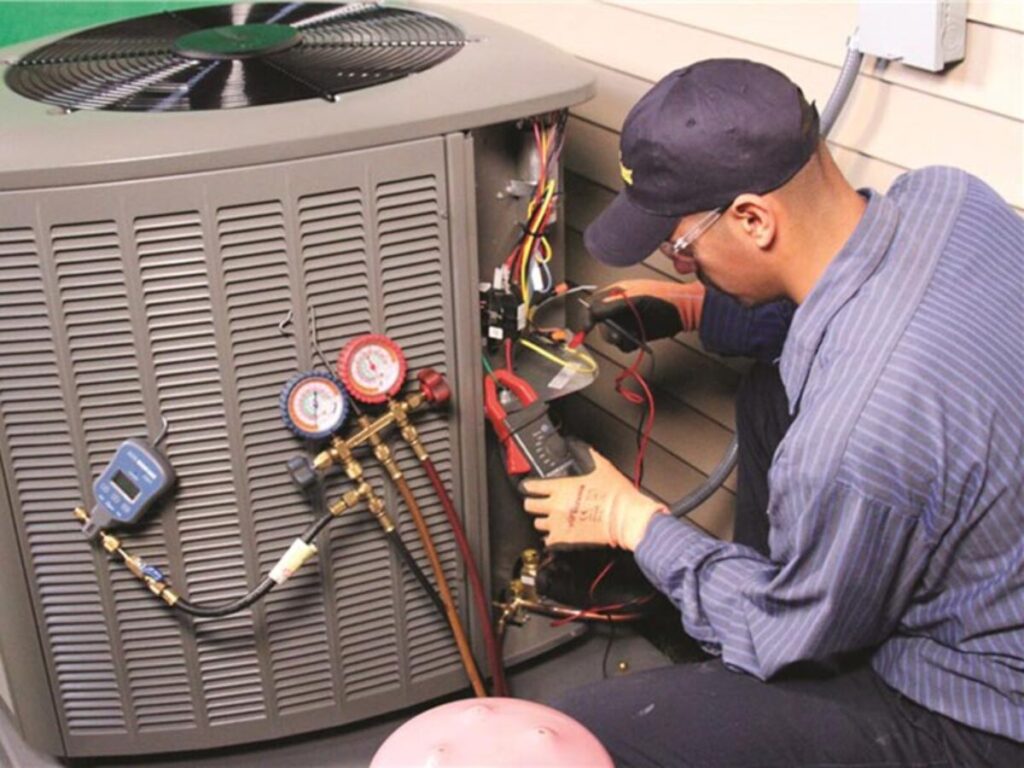
There are several signs that your HVAC (heating, ventilation, and air conditioning) system may need to be replaced. Here are a few of the most common indicators:
Age
HVAC systems typically have a lifespan of 10-15 years, so if your system is approaching or exceeding this age range, it may be time to consider a replacement.
High Energy Bills
If your energy bills have been steadily increasing despite your efforts to reduce energy consumption, it may be due to an inefficient HVAC system that is struggling to keep up with demand.
If your HVAC (Heating, Ventilation, and Air Conditioning) system is causing high energy bills, there are a few things you can do to address the issue:
Check your air filters: Dirty or clogged air filters can cause your HVAC system to work harder than necessary, which can increase your energy bills. Make sure to check and replace your air filters regularly.
Schedule maintenance: Regular maintenance of your HVAC system can help ensure that it is running efficiently. Hire a professional technician to inspect and service your HVAC system at least once a year.
Adjust your thermostat: Make sure your thermostat is set at an appropriate temperature. Setting it too high or too low can cause your system to work harder and increase your energy bills.
Insulate your home: Poor insulation can cause your HVAC system to work harder than necessary. Make sure your home is properly insulated, especially in the attic and walls.
Consider upgrading your system: If your HVAC system is old or inefficient, it may be time to consider upgrading to a more energy-efficient model. Newer models can save you money on your energy bills in the long run.
Frequent Repairs
If you find yourself frequently calling for repairs or maintenance on your HVAC system, it may be a sign that it is nearing the end of its useful life.
Inconsistent Temperatures
If you notice that some rooms in your home are consistently colder or hotter than others, it may be a sign that your HVAC system is no longer able to distribute air evenly throughout your home.
Here are a few potential causes:
Dirty air filters: If your HVAC air filters are dirty or clogged, they can restrict airflow and make it difficult for your system to distribute air evenly throughout your home. This can result in inconsistent temperatures.
Leaky ductwork: If there are leaks or gaps in your HVAC ductwork, it can cause the air to escape, making it difficult for your system to distribute air evenly. This can result in inconsistent temperatures.
Thermostat issues: If your thermostat is malfunctioning or not calibrated correctly, it can cause your HVAC system to run longer or shorter than it should, resulting in inconsistent temperatures.
Improperly sized HVAC system: If your HVAC system is too small or too large for your home, it can cause inconsistent temperatures.
Blocked vents: If your vents are blocked by furniture, curtains, or other objects, it can restrict airflow and cause inconsistent temperatures.
Strange Noises
Unusual noises coming from your HVAC system, such as rattling, banging, or squeaking, may be a sign of a serious problem that requires attention.
Here are a few potential issues that could cause strange HVAC noises:
Loose or damaged parts: If parts inside your HVAC system are loose or damaged, they may vibrate or scrape against each other, causing unusual sounds.
Clogged air filter: An Atlanta Commercial HVAC business told me a dirty air filter can cause your system to work harder than necessary, leading to unusual sounds.
Faulty fan motor: If the fan motor is malfunctioning, it may produce grinding, squeaking, or other unusual sounds.
Refrigerant leak: A refrigerant leak can cause a hissing or bubbling sound.
Ductwork issues: If your HVAC ductwork is poorly installed or damaged, it can cause a whistling, rattling, or banging noise.
Poor Air Quality
If you or members of your household are experiencing respiratory issues or allergies, it could be due to poor air quality caused by a malfunctioning HVAC system.
If you notice any of these signs, it may be time to consult with an HVAC professional to determine whether your system needs to be repaired or replaced.